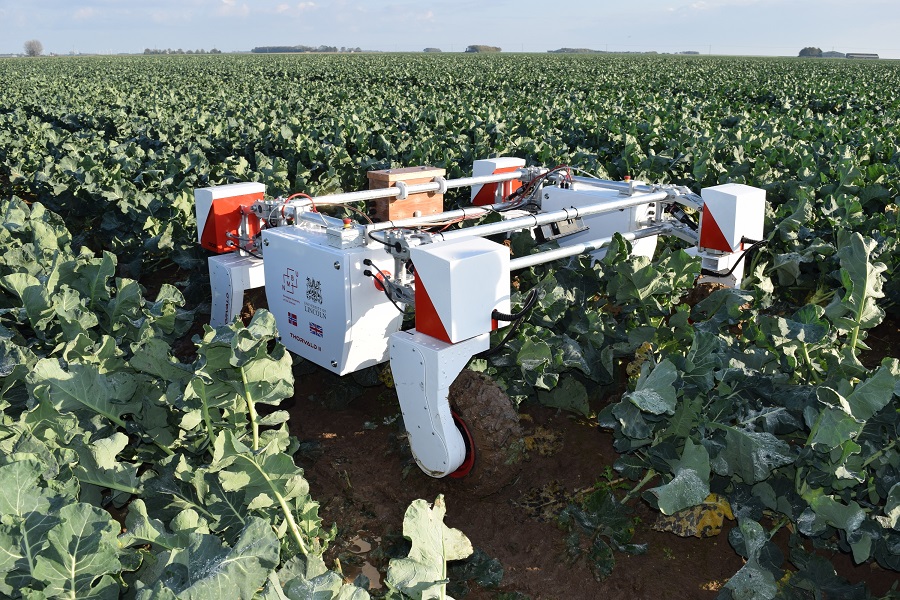The University of Lincoln is part of an innovation to deliver an accelerated programme of robotic crop harvesting for horticulture and is one of just three projects to be chosen for a share of £9m funding from the Department for Environment Food and Rural Affairs’ Farming Innovation Programme.
The project, called Agri OpenCore, aims to tackle the lack of seasonal labour in the UK horticulture industry and is looking to accelerate the delivery of robotic crop systems for horticulture.
Many crops have gone unpicked this year, leading to large amounts of unnecessary waste. President of the National Farmers Union (NFU) Minette Batters has said that the waste in the food sector is an ‘absolute crisis’.
The Lincoln Institute of Agri-Food Technology (LIAT) at the University of Lincoln, UK, is partner in Agri-OpenCore alongside project lead APS Produce Ltd with Dogtooth Technologies Ltd, Wootzano Ltd and Xihelm Ltd.
There is currently no robotic harvesting system that can match the speed of human picking. Agri-OpenCore aims to make progress in this area by cutting the time and cost of developing a robotic harvesting system that achieves parity with human picking.
To deliver this, Agri-OpenCore will develop the world’s first open development platform for agri-robotic harvesting, aiming to develop commercial robotic systems for tomato and strawberry harvesting that achieve human-picking-cost-parity in two years.
Dr Grzegorz Cielniak, Associate Professor at the Lincoln Agri-Robotics Centre and Principal Investigator for the University of Lincoln, said:
“The University of Lincoln robotics team, together with the agri-robotics industry, is working on Agri-OpenCore, a project targeting an open development platform for robotic crop harvesting. The platform will facilitate standardised access to the core robotic software and hardware components enabling rapid adoption by the industry and academia.
“The University of Lincoln team will work on the standardisation of the framework as well as on the development of the autonomy, perception and safety components.
“The core functionality of the platform will enable further development and customisation which can be privately exploited by the industry. The project will lead to faster adoption of more reliable robotic technology in agriculture which will be demonstrated by developing robotic tomato and strawberry harvesting systems. Such a strategy will lead to step changes in farming productivity and help to alleviate global problems with the availability of a workforce in the sector.”
Phil Pearson, Group Development Director, APS Group, said: “The Agri-OpenCore robotics project is an exciting, and vital project for the fresh produce industry. It promises to deliver the significant progress required to automate fresh produce harvesting in the UK.
“As this work brings leading technology providers, Dogtooth, Xihelm and Wootzano, with the academic excellence of the University of Lincoln team, we can expect significant progress towards autonomous harvesting.”



